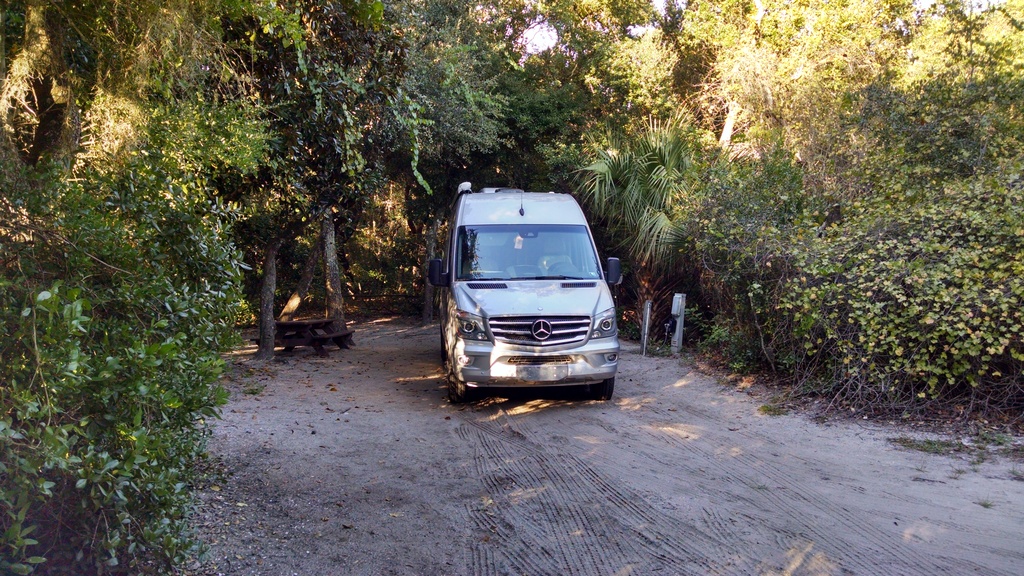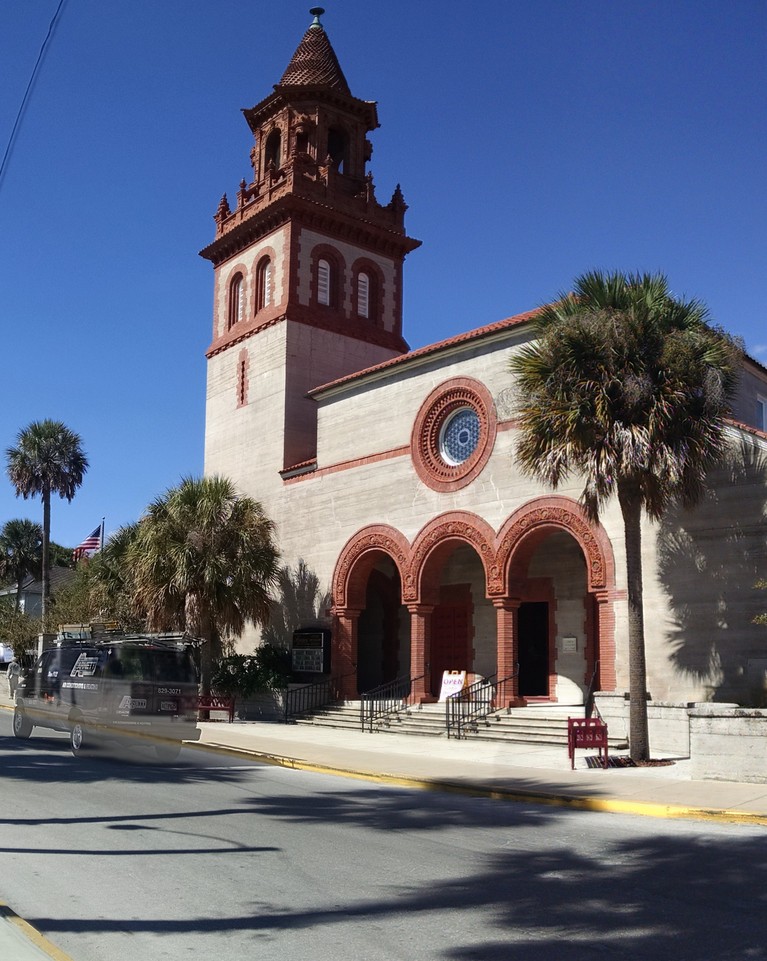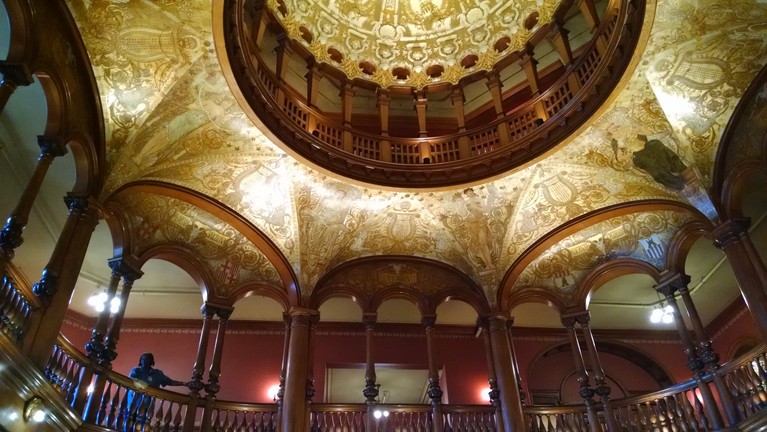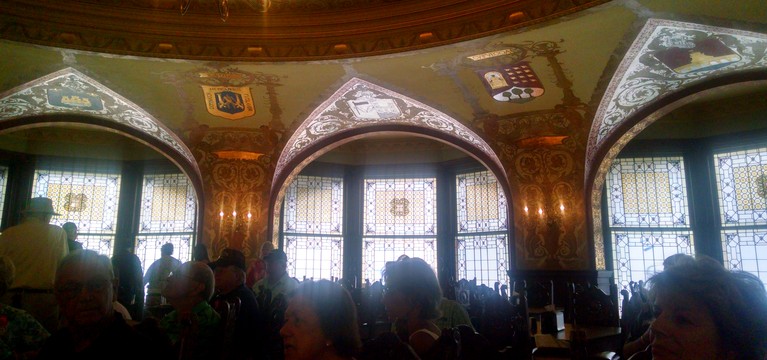Anastasia State Park is on an island adjacent to St. Augustine. The park has a large campground and 4 miles of beach. It is very popular year round, so reservations are a must.

Most sites at Anastasia feel as if they have been carved out of the jungle just for you. They are very private and quiet. Access to miles of white sandy beach was convenient. Bathhouses were clean and showers were hot. Bottom line: this is a beautiful park with many reasons to visit.
St. Augustine bills itself as “America’s First City”. It was founded in 1565 by Spanish explorers, who promptly built a fort. The original fort was rebuilt and named Castillo de San Marcos. Anastasia island is clearly visible from the upper level.

The city of St. Augustine was shaped by the Spanish and later by oil baron and railroad tycoon Henry Flagler. (Flagler went on to found Palm Beach and Miami, then to build the overseas railway to Key West). In St. Augustine, he built a lavish hotel and Grace church.

Flagler’s hotel, the Ponce de Leon, was luxurious and very exclusive. Wealthy northern guests came to stay for the season, where they could enjoy beautiful surroundings and modern conveniences such as electricity, installed by Flagler’s friend Thomas Edison. Interior design was headed by Louis Comfort Tiffany, who installed 79 stained glass windows in the dining room. The hotel was so successful that another leading citizen decided to build a competing hotel. Unfortunately it couldn’t open because the furniture didn’t arrive. It was supposed to be shipped in on Flagler’s railroad, but it disappeared. After 2 years without furniture, the owner gave up and sold the place to Henry Flagler.
The Ponce de Leon Hotel is now owned by Flagler College, which uses the space as a dining hall and dormitory. Happily, they offer tours to the public.

